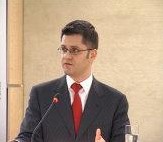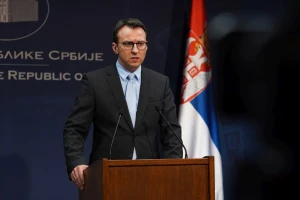- Serbia
Get to know Serbia
- Citizens
Culture and science
Health services
Pension and disability insurance
- Business
Employment
Economy
- Media
- Government
- Contact
Keep in touch
Contact form
Back
Keepin touch
Whether you have a question, comment, suggestion or any problem in the purview of the government, send us your message and we will try to respond as soon as possible. If your problem is not in our purview, we will forward your message to the relevant institution.
Q:
A:
Jeremic calls on UN Human Rights Council to support comprehensive investigation
Belgrade/Geneva,
1 March 2011
Minister of Foreign Affairs Vuk Jeremic called on the UN Human Rights Council today in Geneva to support Serbia's request for a comprehensive international investigation into human organ trafficking in Kosovo- Metohija.
Jeremic said at the 16th session of the UN Human Rights Council that Serbia insists on a credible and transparent criminal investigation to verify the veracity of these allegations.
In order for investigation to be effective and comprehensive it has to be under international mandate and accountable to the international public and must provide effective witness protection so that their credible testimony could be guaranteed, the Minister explained.
He referred to statements from the report of the Council of Europe that Drenica Group of the Kosovo Liberation Army dealt with money laundering, trafficking in drugs, cigarettes and arms, but also in trafficking in human organs which were sold on the black market.
The report explicitly names the current Prime Minister of Kosovo Hashim Thaci as the leader of the group, including Xhavit Haliti and Shaip Muja, Jeremic specified.
The Minister warned that the allegations of trafficking in human organs go beyond not only Serbia’s territory, but also beyond the territories of various UN member states in Europe, Asia and Africa.
The investigation must be coordinated by an international authority that would deal both with judicial matters and the application of justice. Such an authority does not exist at the moment, which is why Serbia requested the establishment of an ad hoc mechanism accountable to the UN Security Council, Jeremic said.
We believe that the imperative for conducting a proper investigation must not be politicised or linked with a diplomatic discord over Kosovo, said Jeremic, noting that Serbia is a country of tolerance in which almost 30 ethnic and religious communities cohabitate.
He stressed that Serbia is a land of integration where the identity and culture of each community is not only protected by laws and regulations, but also respected in practice.
Unfortunately, Kosovo-Metohija is a place where standards in terms of respecting human rights are not met.
Referring to a report by Amnesty International, Jeremic said that the UN Refugee Commissariat and other international organisations are of the opinion that there are no conditions for sustainable return of Serbs to the province.
The same document concludes that the current situation in the province is unstable and insecure, the Minister observed, stressing that Serbia has made a number of concrete steps to contribute to the reconciliation in the Western Balkans.
Jeremic stressed that Serbian President Boris Tadic has worked hard to improve bilateral relations with Croatia despite the differing perspectives of the events in the period 1991–1995, voicing his expectation that there will be progress in terms of resolving issues such as the return of exiled Serbs, missing persons, restitution of property and rights to pension.
The Minister announced that Serbia will soon fully harmonise its national legislative framework with the current human rights conventions, especially the ones under the competence of the UN Human Rights Council.
In order for investigation to be effective and comprehensive it has to be under international mandate and accountable to the international public and must provide effective witness protection so that their credible testimony could be guaranteed, the Minister explained.
He referred to statements from the report of the Council of Europe that Drenica Group of the Kosovo Liberation Army dealt with money laundering, trafficking in drugs, cigarettes and arms, but also in trafficking in human organs which were sold on the black market.
The report explicitly names the current Prime Minister of Kosovo Hashim Thaci as the leader of the group, including Xhavit Haliti and Shaip Muja, Jeremic specified.
The Minister warned that the allegations of trafficking in human organs go beyond not only Serbia’s territory, but also beyond the territories of various UN member states in Europe, Asia and Africa.
The investigation must be coordinated by an international authority that would deal both with judicial matters and the application of justice. Such an authority does not exist at the moment, which is why Serbia requested the establishment of an ad hoc mechanism accountable to the UN Security Council, Jeremic said.
We believe that the imperative for conducting a proper investigation must not be politicised or linked with a diplomatic discord over Kosovo, said Jeremic, noting that Serbia is a country of tolerance in which almost 30 ethnic and religious communities cohabitate.
He stressed that Serbia is a land of integration where the identity and culture of each community is not only protected by laws and regulations, but also respected in practice.
Unfortunately, Kosovo-Metohija is a place where standards in terms of respecting human rights are not met.
Referring to a report by Amnesty International, Jeremic said that the UN Refugee Commissariat and other international organisations are of the opinion that there are no conditions for sustainable return of Serbs to the province.
The same document concludes that the current situation in the province is unstable and insecure, the Minister observed, stressing that Serbia has made a number of concrete steps to contribute to the reconciliation in the Western Balkans.
Jeremic stressed that Serbian President Boris Tadic has worked hard to improve bilateral relations with Croatia despite the differing perspectives of the events in the period 1991–1995, voicing his expectation that there will be progress in terms of resolving issues such as the return of exiled Serbs, missing persons, restitution of property and rights to pension.
The Minister announced that Serbia will soon fully harmonise its national legislative framework with the current human rights conventions, especially the ones under the competence of the UN Human Rights Council.
-
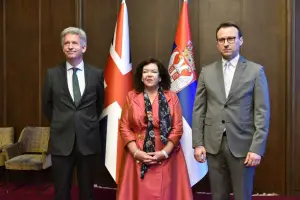 Belgrade, 18 July 2025
Belgrade, 18 July 2025Daily exposure of Serbs in Kosovo and Metohija to Priština’s terror
-
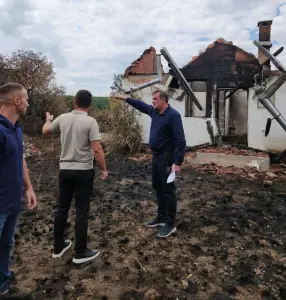 Belgrade, 11 July 2025
Belgrade, 11 July 2025Aid to families in Kosovo and Metohija who suffered damage from fires
-
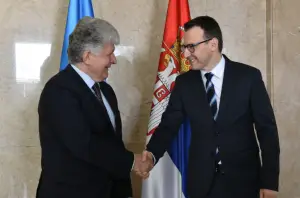 Belgrade, 10 July 2025
Belgrade, 10 July 2025Serbs in Kosovo and Metohija existentially threatened, disenfranchised
-
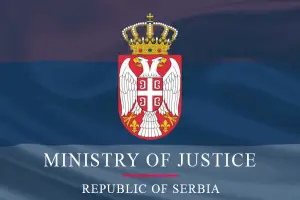 Belgrade, 19 June 2025
Belgrade, 19 June 2025Priština once again gravely violates basic human rights of Serbs in Kosovo and Metohija
-
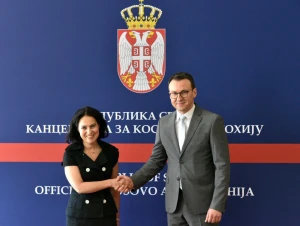 Belgrade, 13 June 2025
Belgrade, 13 June 2025Constant violent acts of Priština against Serbian people in Kosovo and Metohija
-
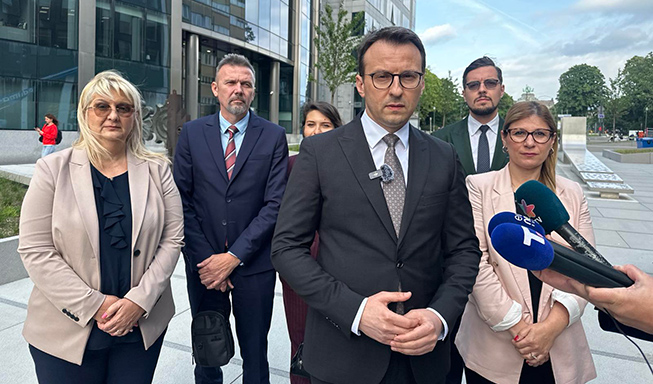 Belgrade/Brussels, 10 June 2025
Belgrade/Brussels, 10 June 2025Formation of Community of Serb Municipalities, de-escalation of situation in north of Kosovo and Metohija a priority
-
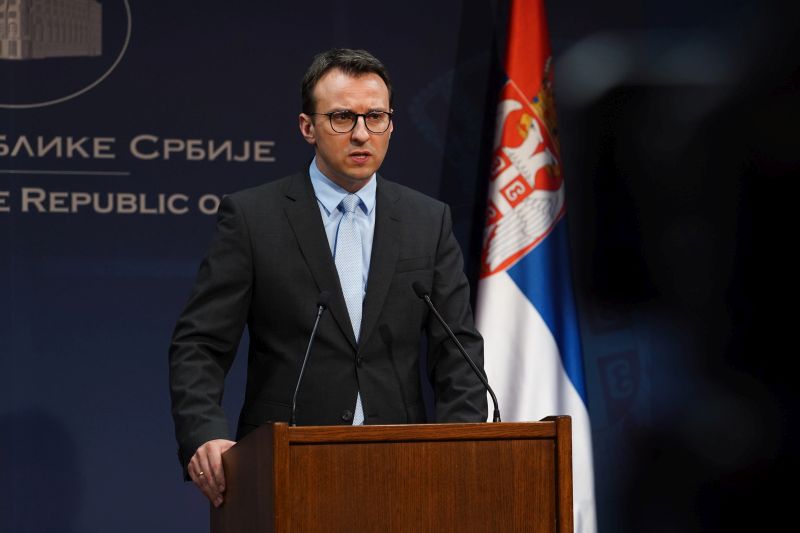 Belgrade, 27 May 2025
Belgrade, 27 May 2025“Kosovo police” raid premises of Leposavić Sports and Tourism Organisation
-
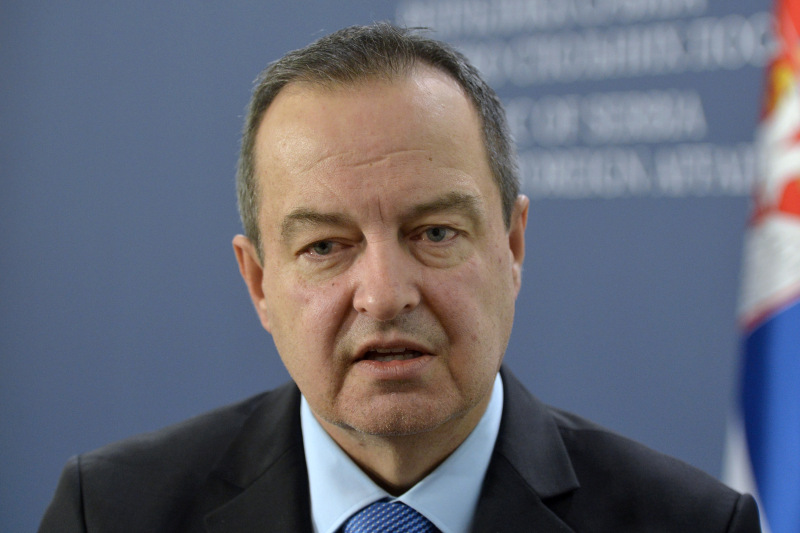 Belgrade, 24 May 2025
Belgrade, 24 May 2025Arrest warrant issued for attacker on Serbian high school graduate in North Mitrovica
-
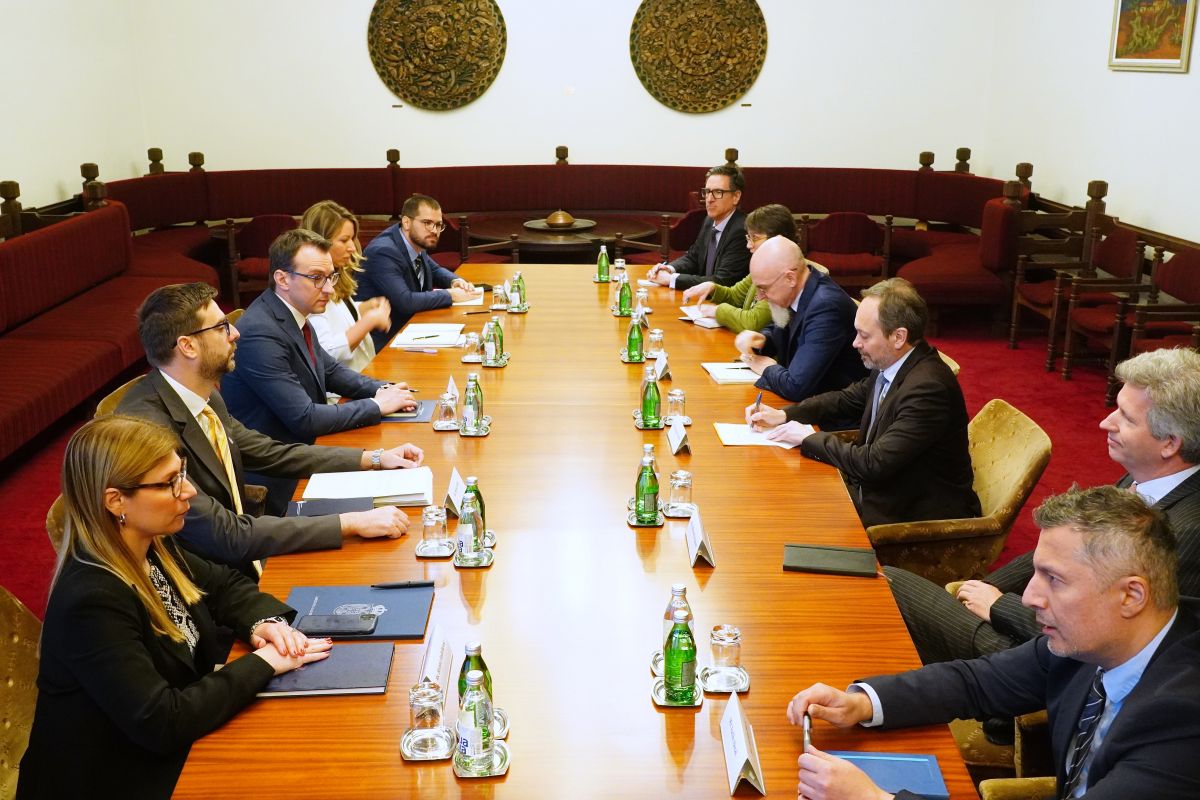 Belgrade, 15 May 2025
Belgrade, 15 May 2025De-escalation priority topic in dialogue with Priština

